Lorna (1964)
| director: | Russ Meyer |
| release-year: | 1964 |
| genres: | romance, sexploitation, drama |
| countries: | USA |
| languages: | English |
Lorna, Russ Meyer's first foray out of explicit adult films into merely sexploitative serious filmmaking. "Afflicted with terrible taste and not a shred of talent anywhere," raves the Los Angeles Times.
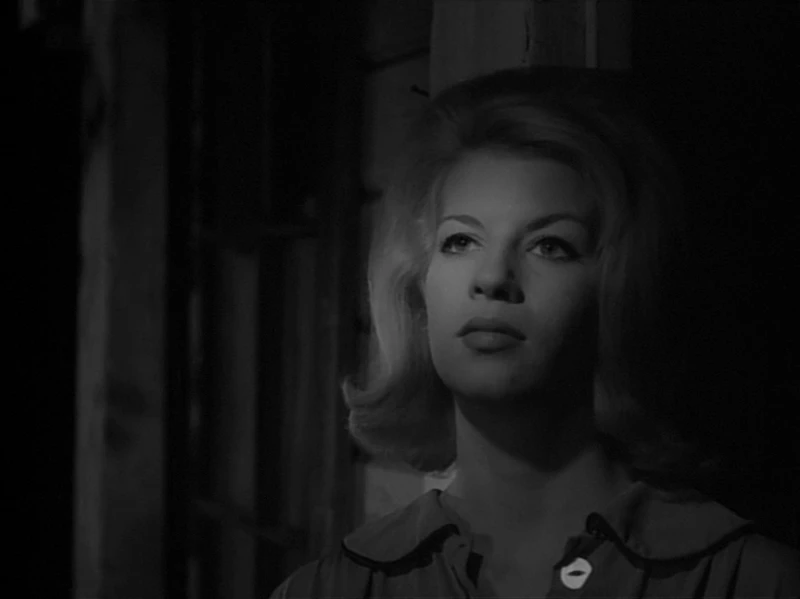
A couple of hillbillies who can barely act follow a woman home with the clear intent to rape her. The main hillbilly overpowers her to the entirely inappropriate tune of a xylophone soundtrack, but gets mad at her when she resists so he just beats her a bit instead. He mutters that she's not the one they want anyway.
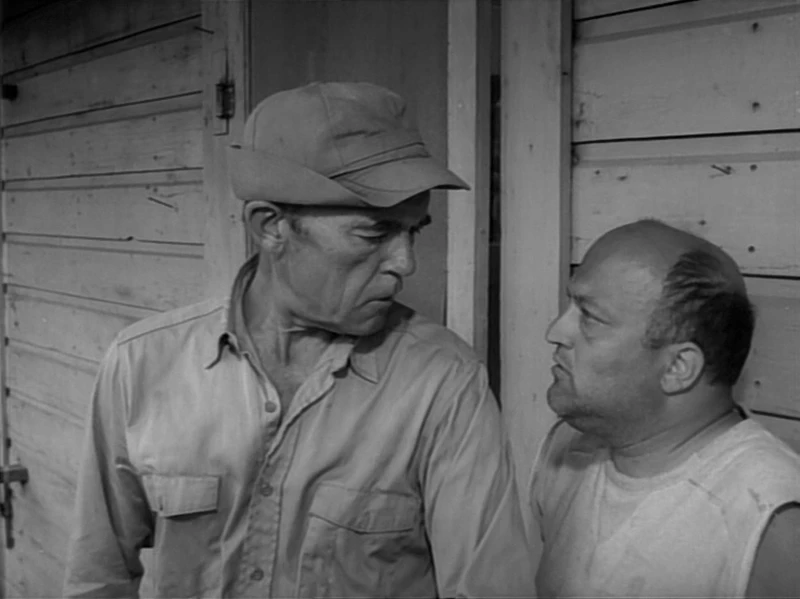
We cut to a young man passionately telling a beautiful woman that he loves her. She says "yeah, alright," rather uncaringly. They briefly have sex, and she looks thoroughly disappointed.
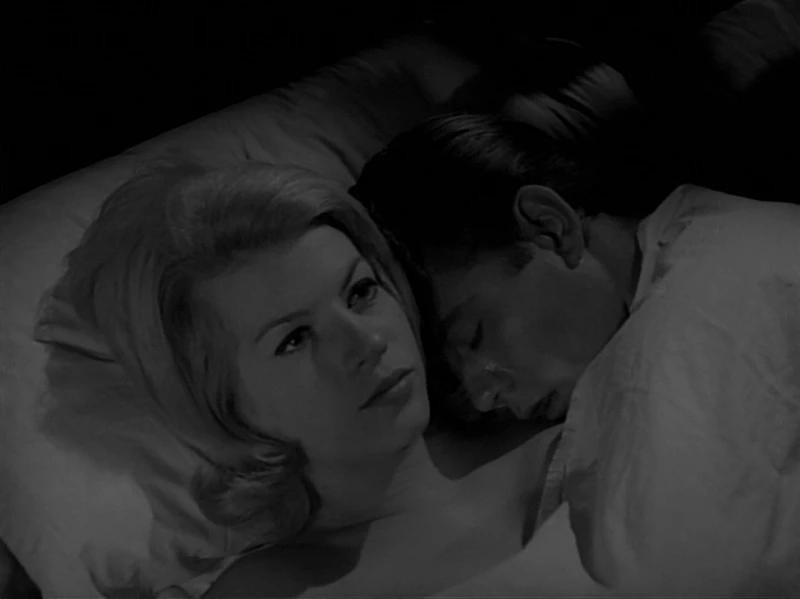
She wanders out into the moonlight to depressedly have an atrocious voiceover monologue about how her husband never gives her orgasms, and voiceover us the entire backstory while she's at it. She wishes she was bippity-bopping to hep jazz in an erotic nightclub instead.

Her kind, gentle, naïve husband works with the rapist hillbillies, who swing by to pick him up on a ramshackle boat. They inquire all about his sex life and his wife's general whereabouts, because Lorna is, of course, "the one they want." They motor off to their job site.
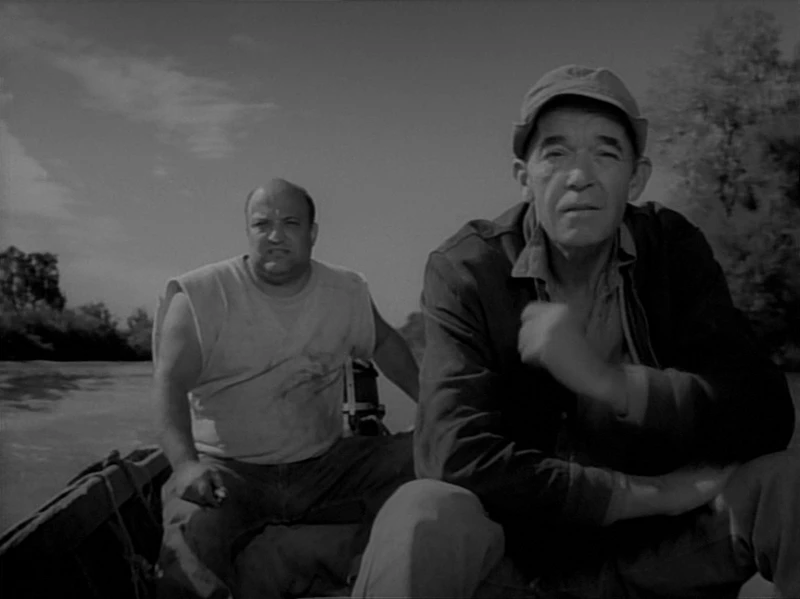
I guess the most important thing about this film is learning that the Sacramento–San Joaquin river delta exists, a spidering network of water channels through northern California that looks quite a lot like the Louisiana bayou when shot in B&W. It's in that river delta where Lorna goes skinny dipping and encounters the splotchy-bearded, murderous escaped convict on the lam from the law. He immediately tries to rape her, and after a few seconds she falls in love and the music transitions to gentle, smooth jazz.
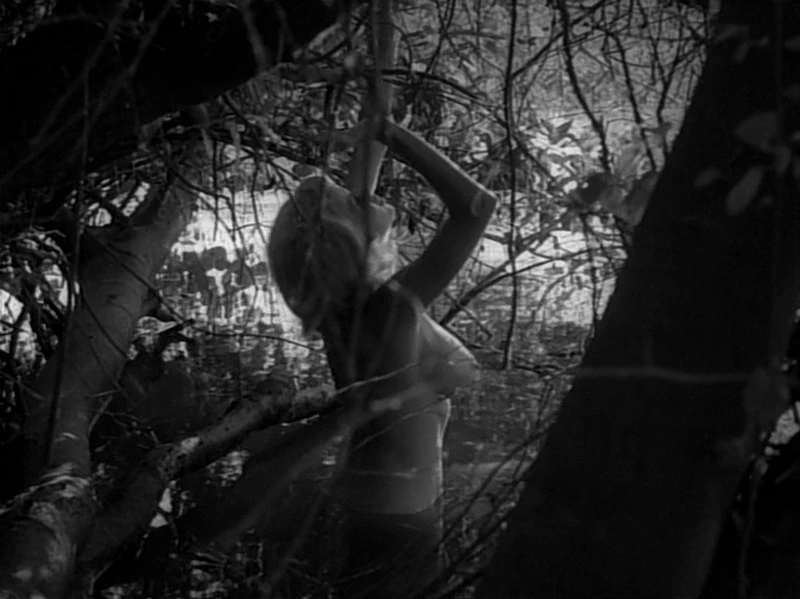
In the intro, and scattered throughout the film, are scenes where a preacher breaks the fourth wall and awkwardly preaches lessons of morality at the camera. He delivers his lines badly, and his scenes are cut poorly. He preaches about Lot's wife being turned to a pillar of salt right between the scene of Lorna cheating and the scene showing us her husband's job: mining salt. This is more allegorical than one might expect from a low-budget softcore money grab.
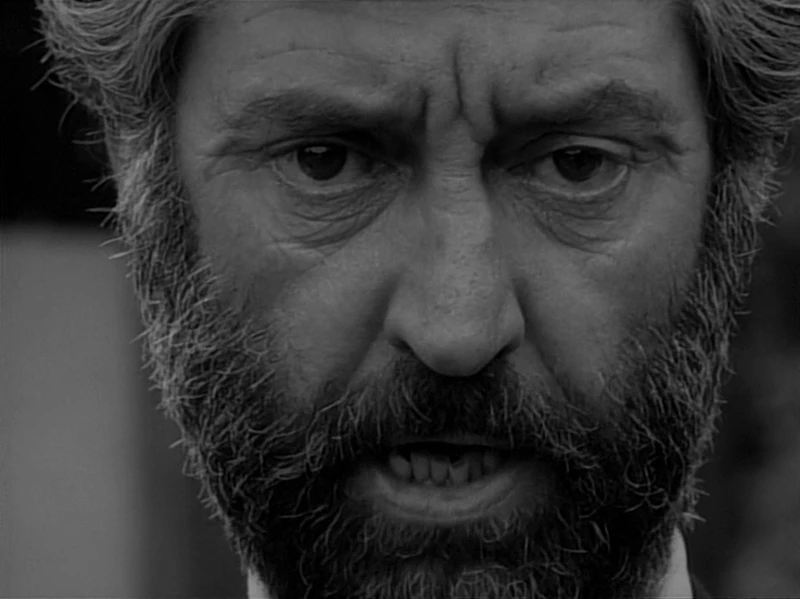
Lorna overhears the general store owner mentioning a prison break, and realizes her new boyfriend is the killer. A few seconds later, she unnecessarily relives the scene again through voiceover flashback. Too bad she invited him to move into her house while her husband is shoveling salt. Oh well, she goes home and complains to him about her boring husband.
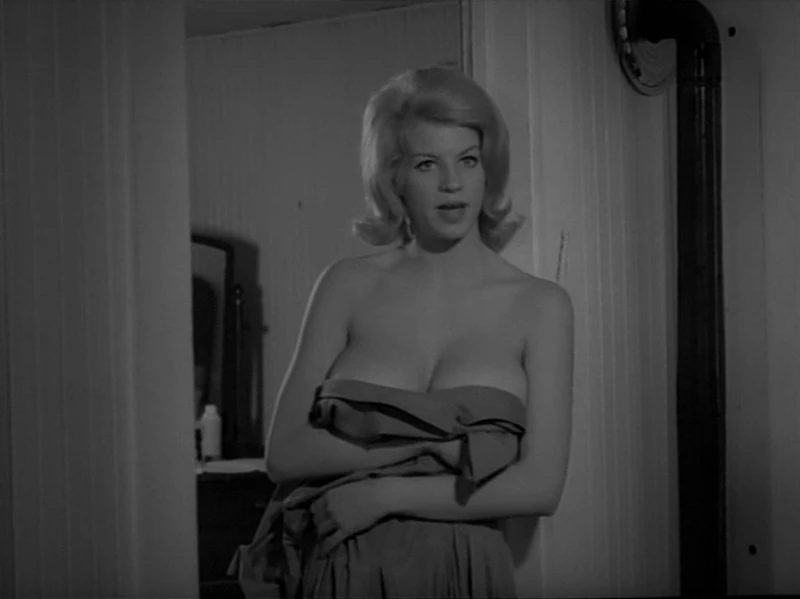
The husband's manspreading coworker tells him about a book about cheating wives, and how the husband kills himself in the end. This is presented so unsubtly that it can't not be foreshadowing. Then the coworker writes a song about a cheater in a love triangle, which he sings to us from atop a salt mound. The salt looks identical to fake snow. It's probably asbestos. The husband and coworker have a shovel fight in the salt, and both inhale plenty.
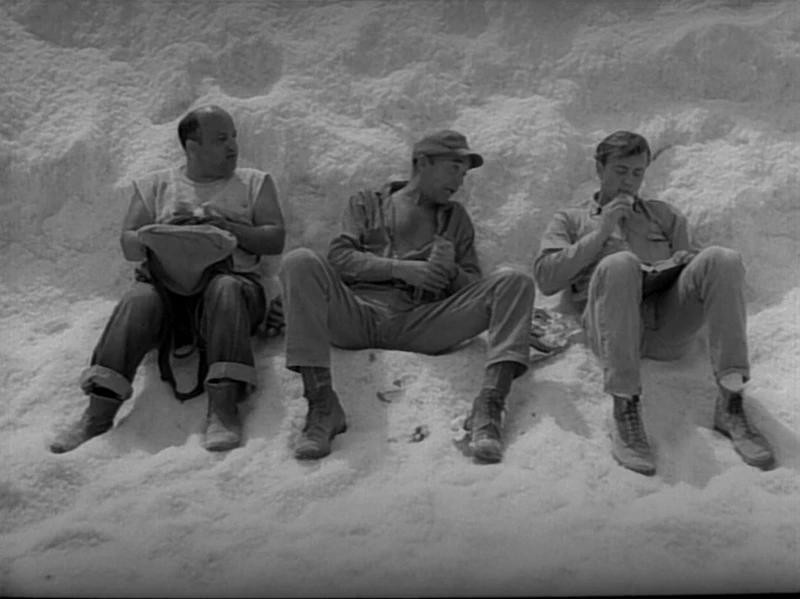
The convict is just trying to enjoy a nice meal and glass of milk, but Lorna won't stop licking him. He just wants a meal and a nap. She doesn't believe that "no means no," which is fair since nobody else seems to either. She gets her wish, but unfortunately her husband comes home early from the shovel fight.
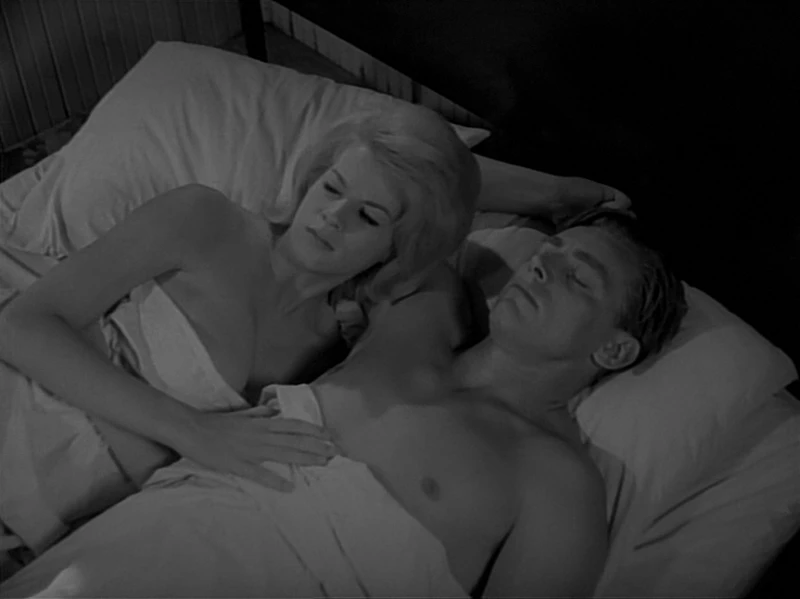
The awful, violent, rapist coworker completely inverts his personality and dumps his deepest feelings on Lorna, telling her she truly has something special with her husband and he was simply jealous. Then an axe fight between husband and convict begins. Both men are dressed the same and have the same haircut, so it's really hard to tell who is winning.
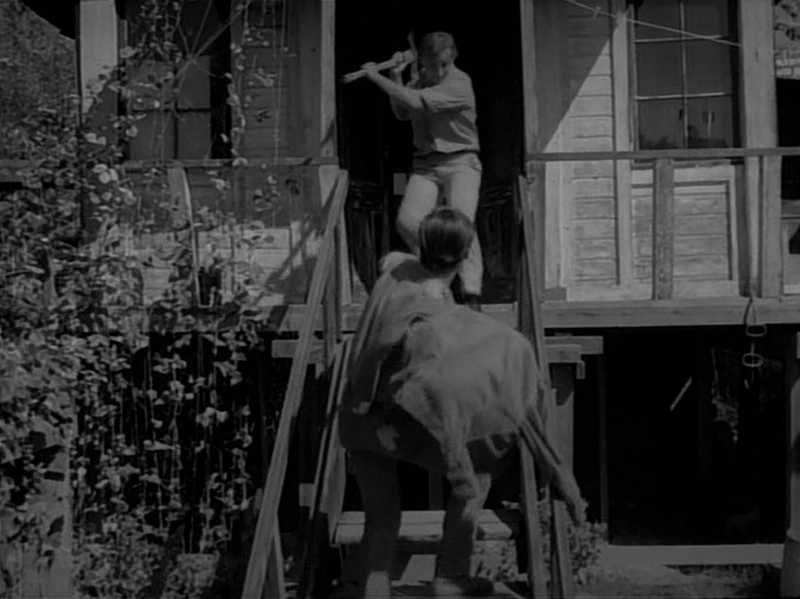
Lorna tries to save her husband. The coworker throws a small pocket knife, killing the convict on contact. He started off a hillbilly rapist, but I guess he's the good guy now.
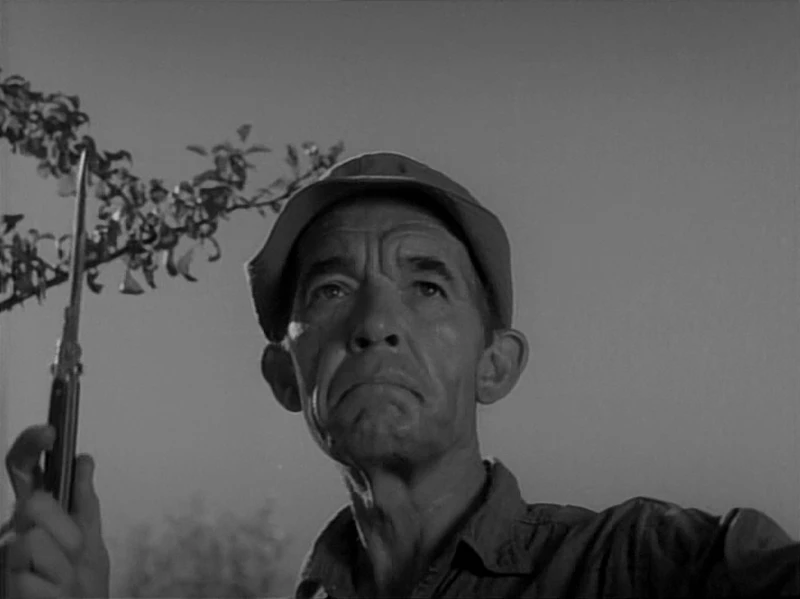
It cuts momentarily to a shot of death standing on a hill with a scythe, then cuts back… huh. He really was trying to do something with this other than just breasts, but I'm not sure he knew how to bring it together.
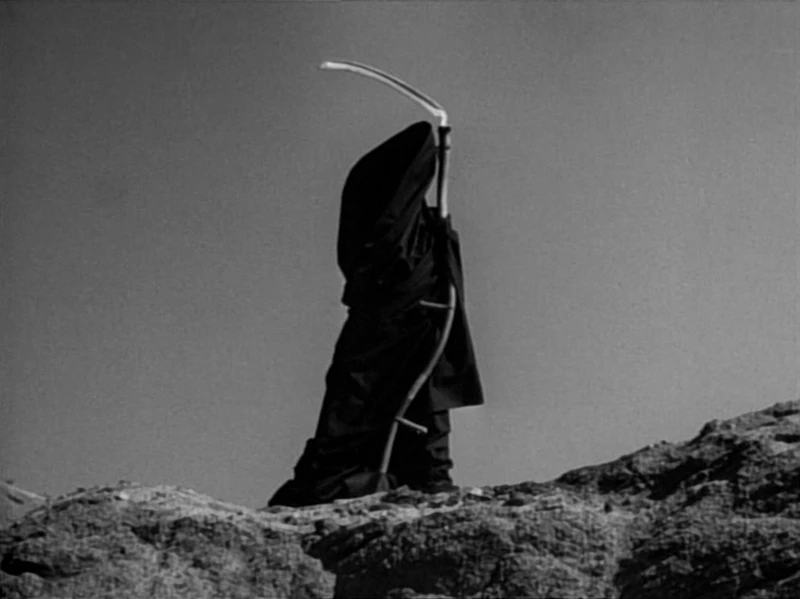
Somehow, Lorna gets killed in the struggle. She wakes up a bit later to sigh and die again, in case you missed it the first time. Her ever-faithful husband is devastated.
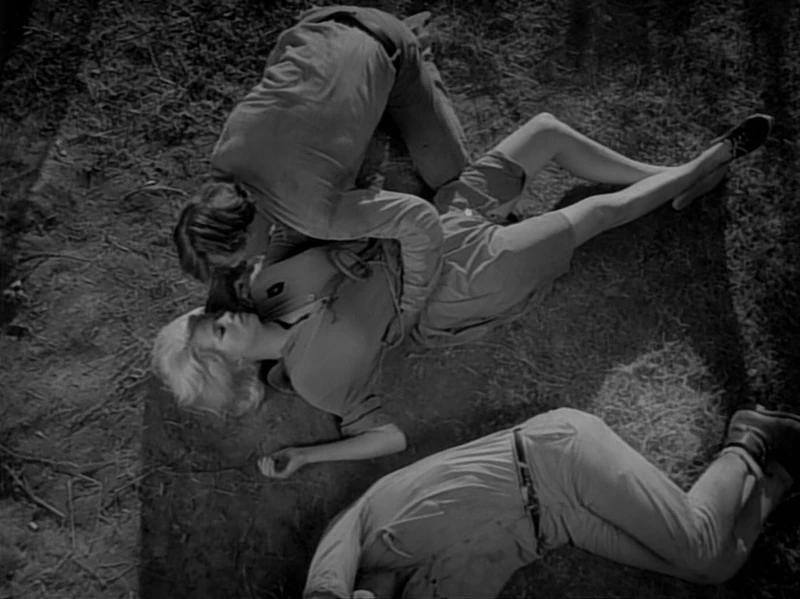
The preacher, who also composed our nice jazz soundtrack, plays us out with some bullshit. He mentions the pillar of salt again, and it cuts to a shot of naked Lorna covered in asbestos, because it really was just about breasts.
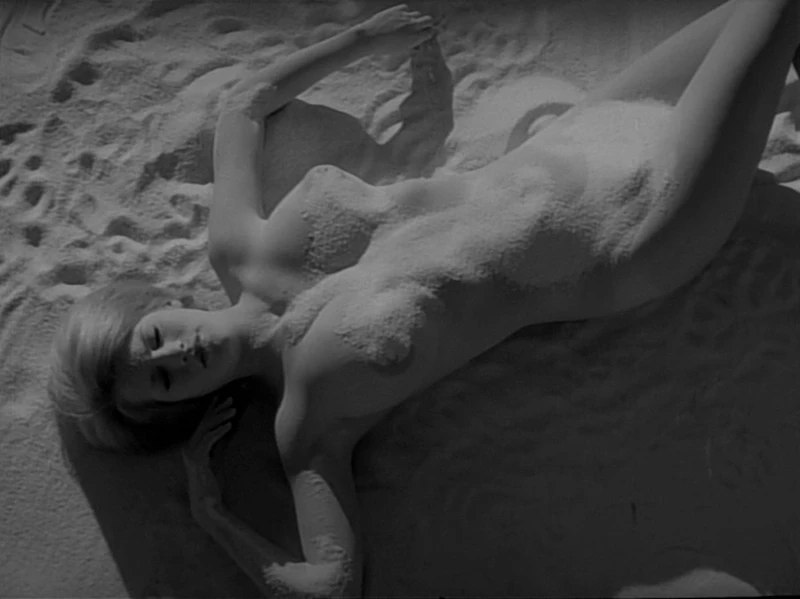
"As ye sow, so shall ye reap," the preacher ends it. The credits roll over a clip show of the film you just watched, just now. And no, it apparently wasn't correct foreshadowing.
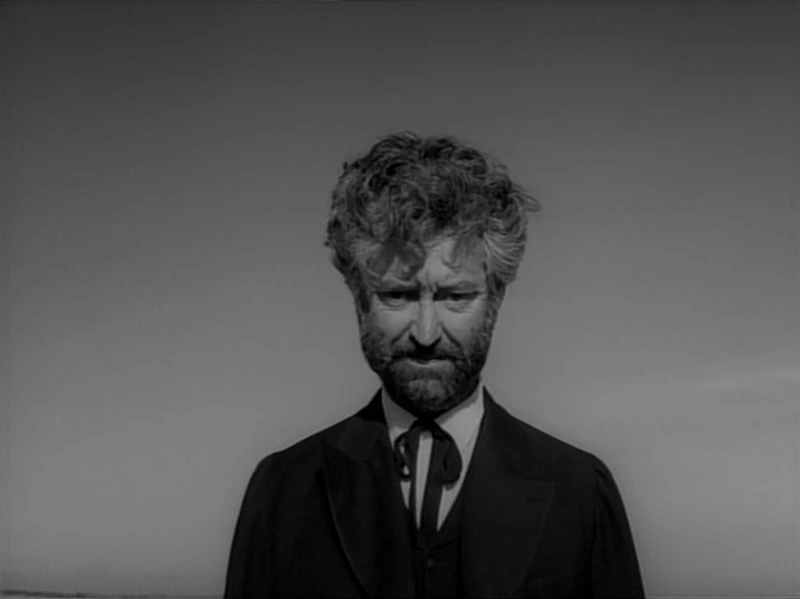
My movie box says "if you liked this, you may enjoy The Tale of Zatoichi, 8½, or A Woman is a Woman". Sure, the Los Angeles Times might have been a bit too harsh on it, but I wouldn't start slotting Meyer in with Fellini. Bergman, maybe.
